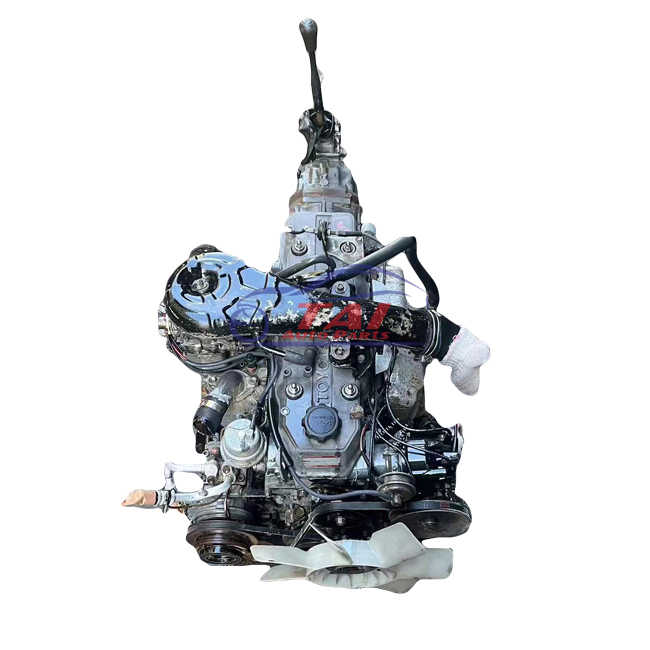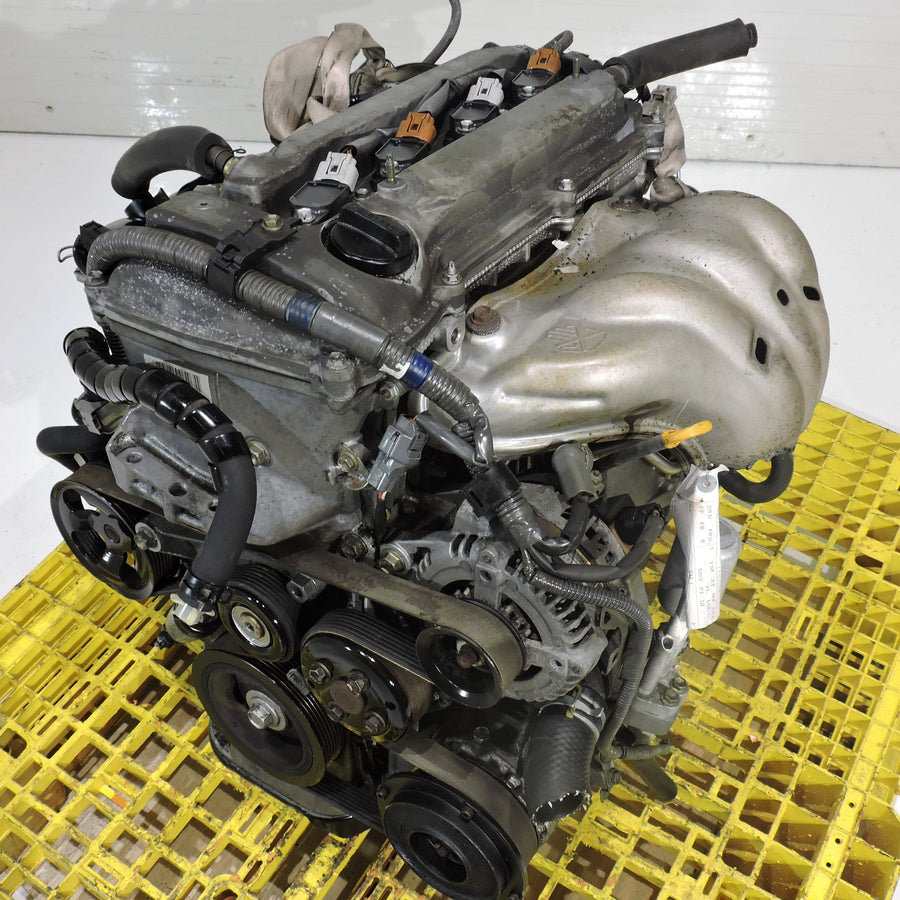Comparing the Toyota RunX RSI to Other Compact Efficiency Cars
Comparing the Toyota RunX RSI to Other Compact Efficiency Cars
Blog Article
Explore Quality and Worth: Your Guide to Purchasing a Pre-owned Engine
When thinking about the purchase of a used engine, understanding the elaborate balance between quality and worth is critical. A comprehensive evaluation of engine dependability, condition, and history is important to make certain an audio financial investment. By carrying out proper assessments and research study, possible purchasers can browse the complexities of the market more successfully. Nonetheless, the subtleties of warranty choices and prices methods can considerably influence the total decision-making process. As you ponder these factors, one question continues to be: what specific elements will eventually lead your selection in this important investment?
Understanding Engine Types
When considering the purchase of a used engine, understanding of the different engine types is vital for making a notified choice. Engines can normally be classified into 2 primary types: internal combustion engines and electrical engines. Interior combustion engines, which consist of fuel and diesel variations, depend on the combustion of gas to generate power. Fuel engines are generally lighter and rev higher, making them appropriate for performance vehicles, while diesel motor are renowned for their torque and fuel efficiency, frequently preferred in heavy-duty applications.
On the various other hand, electrical engines use electricity saved in batteries to power the automobile, offering a cleaner alternative with less moving parts and minimized upkeep requirements. Within these groups, there are additionally differences, such as four-stroke versus two-stroke internal combustion engines, and various electric motor setups.
Recognizing these distinctions is critical, as they impact efficiency, compatibility with existing automobile systems, and long-term functional expenses. By familiarizing oneself with the different kinds of engines offered, prospective buyers can much better analyze their needs and make selections that straighten with their car's requirements and their personal preferences.

Examining Engine Problem
A comprehensive evaluation of engine condition is vital for any person considering the purchase of a second-hand engine. Start with an aesthetic examination; look for signs of oil leaks, rust, or any kind of physical damage to the engine block. A clean engine is often a sign of excellent upkeep methods, while excessive gunk might recommend forget.
Following, examine the engine's elements, consisting of the timing belt, gaskets, and seals. Search for deterioration, as these components can be costly to replace. In addition, take a look at the engine installs, as damaged places may bring about resonances and additional mechanical problems.
A compression test is vital to determine internal engine wellness. Consistent compression across all cyndrical tubes suggests a properly maintained engine, whereas significant inconsistencies might indicate internal damages or wear.
Paying attention to the engine throughout a startup can give useful insights; any unusual sounds, such as rattling or knocking, may recommend deeper issues. Ultimately, preferably, request a test run to review performance under load. By thoroughly evaluating these aspects, possible customers can make educated choices and protect a top quality used engine.
Checking Engine Background
Comprehending the engine's background is essential for making a knowledgeable acquisition. Understanding of previous use, maintenance documents, and any previous damages can dramatically influence the engine's dependability and longevity. Beginning by asking for the automobile recognition number (VIN) or engine serial number, which enables you to trace the engine's history.
Utilize offered resources, such as Carfax or AutoCheck, to obtain an automobile history report. This record will offer important understandings, including accident background, solution records, and previous ownership details. Toyota RunX RSI. Pay particular interest to any signs of serious damages or duplicated fixings, which may indicate underlying problems
Inquire concerning upkeep routines executed on the engine. Normal oil changes, timing belt substitutes, and various other safety nets show accountable ownership. Additionally, ask if the engine has gone through any kind of modifications, as non-standard modifications can affect performance and compatibility with your car.
Lastly, when possible, look for verification from a trusted mechanic who can assess the engine's condition based on its history (Toyota RunX RSI). This complete examination will certainly assist you avoid prospective risks and make sure that your financial investment is rewarding and sound
Warranty and Return Plans
Getting a second-hand engine frequently comes with differing guarantee and return policies that can substantially affect your choice. When taking into consideration a made use of engine, it is important to extensively assess the warranty options provided by the vendor.

Additionally, credible vendors often provide documentation that outlines the guarantee and return procedure, guaranteeing transparency. Constantly request for this details prior to settling your acquisition. A well-defined guarantee and return plan can provide tranquility of mind and secure your investment, making it an indispensable component of the decision-making procedure when purchasing a pre-owned engine.
Locating the very best Deals
When seeking the very best deals on a pre-owned engine, it is crucial to perform comprehensive study and contrast prices from different vendors. Start by exploring on the internet industries, automotive online forums, and neighborhood salvage backyards to gather a thorough understanding of the marketplace. Utilizing price comparison tools can improve this procedure, highlighting affordable rates across different systems.

Think about timing your purchase tactically. Seasonal fluctuations popular can impact prices, with particular times of the year offering far better bargains. In addition, be open to working out prices; numerous sellers may agree to reduce their asking rate, specifically if the engine has actually been noted for an extensive duration.
Verdict
In recap, buying a pre-owned engine requires an extensive assessment of high quality and value. Evaluating engine problem through evaluations and tests, confirming its history, and recognizing service warranty and return plans are critical actions. Additionally, contrasting prices across numerous vendors makes certain the most effective monetary decision. By sticking to these guidelines, customers can enhance their possibilities of getting a published here reputable engine that meets their needs while staying clear of potential risks linked with pre-owned purchases.
When considering the acquisition of a used engine, understanding of the various engine types is crucial for making an informed hop over to these guys decision. Engines can usually be classified into two primary types: internal combustion engines and electric engines. Fuel engines are generally lighter and rev greater, making them ideal for performance vehicles, while diesel engines are renowned for their torque and gas efficiency, frequently preferred in heavy-duty applications.
A detailed assessment of engine condition is critical for any person considering the purchase of a used engine. Begin by requesting the automobile identification number (VIN) or engine serial number, which enables you to trace the engine's background.
Report this page